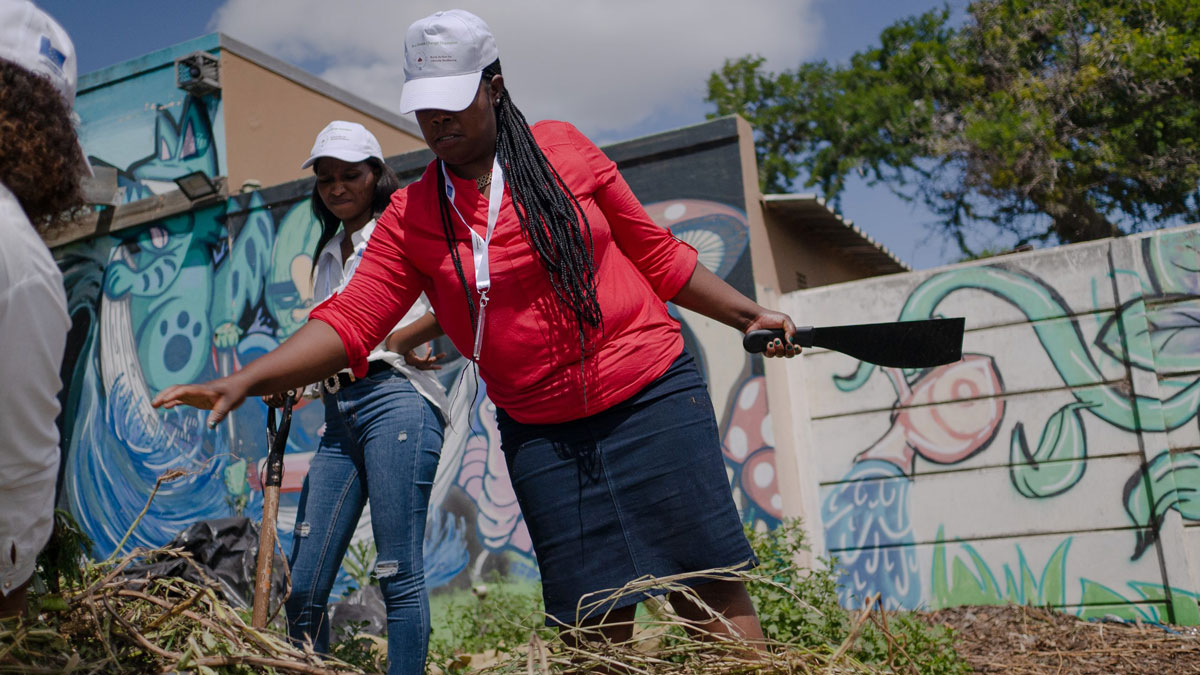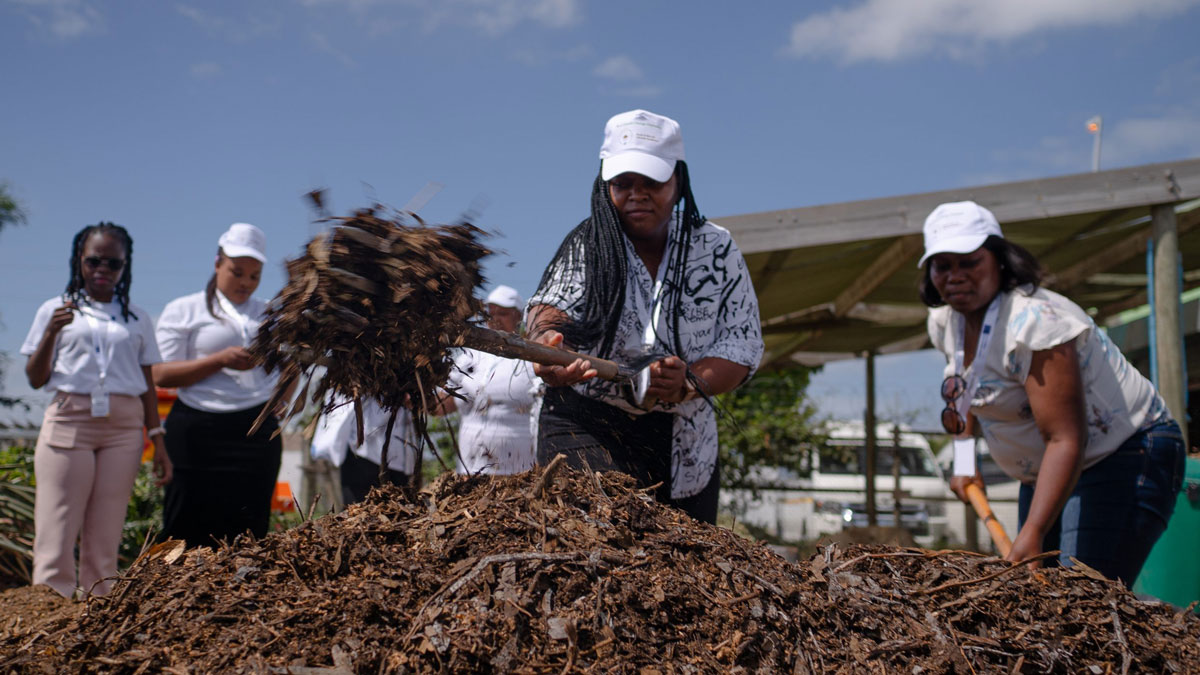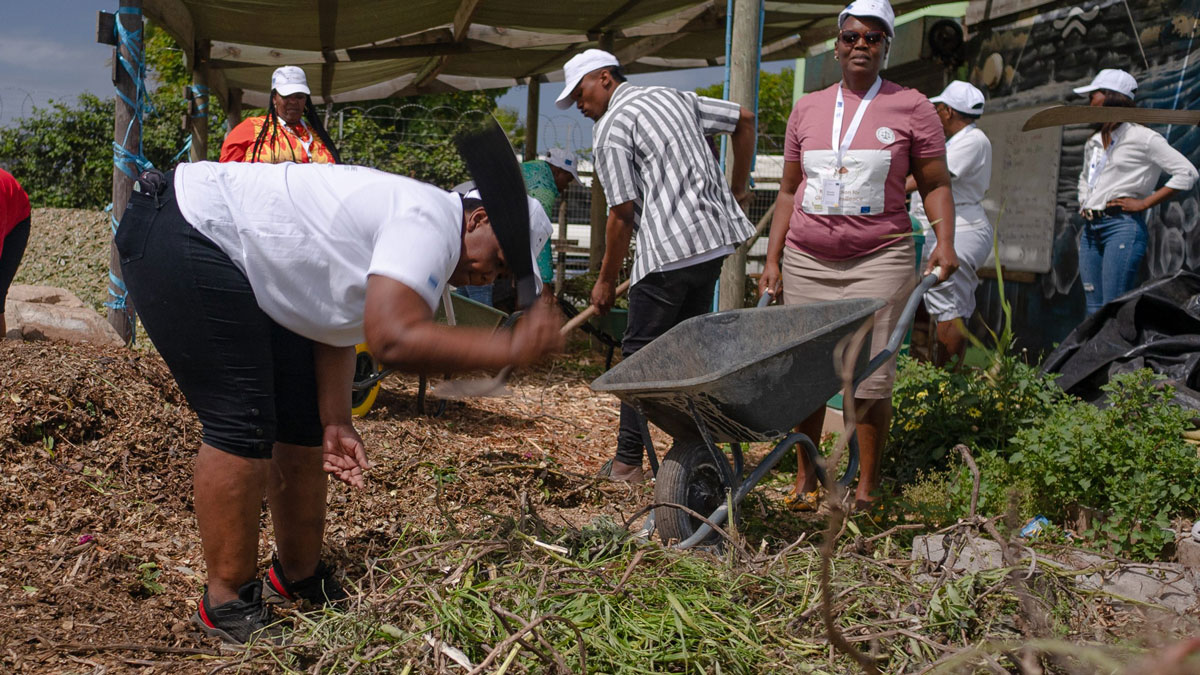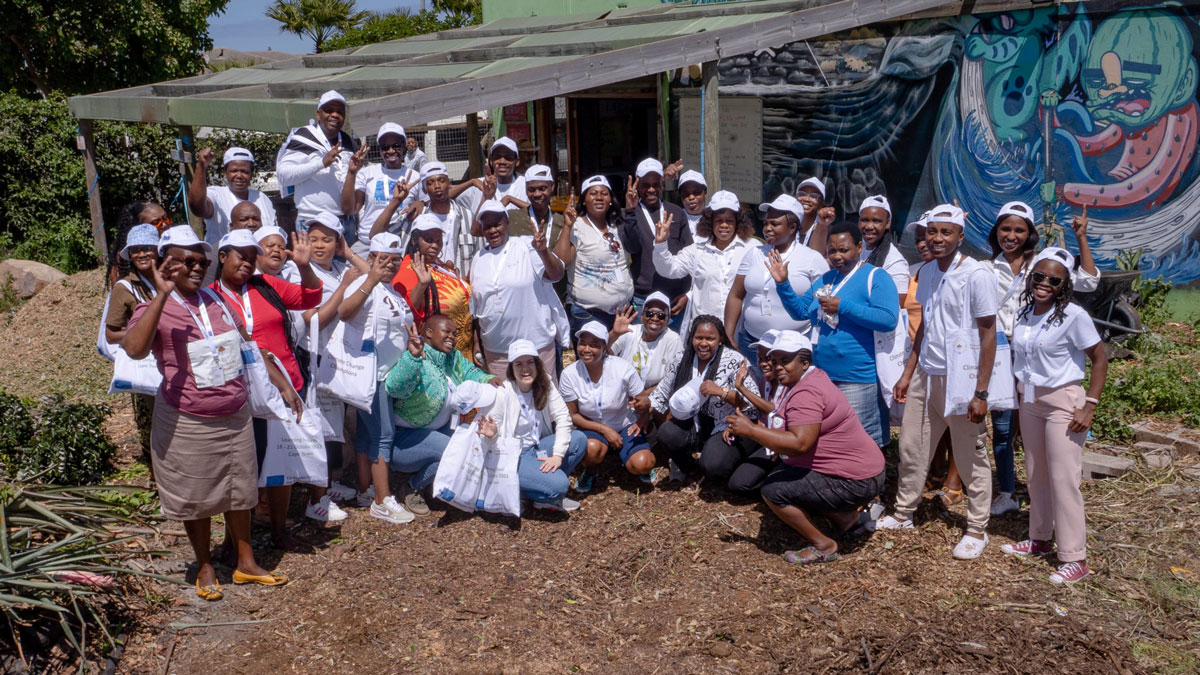Rural Action for Climate Resilience (RACR)
Partnering with rural community-based organisations and faith leaders to build social, economic and environmental resilience to climate change.
Partnering with rural community-based organisations and faith leaders to build social, economic and environmental resilience to climate change.
Although rural populations are the most vulnerable to climate change, they are the least prepared for the impact. They are not able to participate in discussions on how to respond to climate change, and their indigenous knowledge systems are often ignored when challenges and solutions are debated.
The Social Change Assistance Trust (SCAT), Southern African Faith Communities' Environment Institute (SAFCEI), and Heinrich Böll Stiftung (HBF) are responding to this challenge, in a project funded by both the European Union and HBF. Rural communities in the Eastern, Western, and Northern Cape are being supported to put their ideas into practice and to make their voices heard in local and national debates on climate change.
‘toughness, the ability to recover from or adjust easily to misfortune or change’.
‘a human-produced change in weather patterns, with more frequent extreme weather, including hotter temperatures – global warming’.
The Social Change Assistance Trust (SCAT), Southern African Faith Communities' Environment Institute (SAFCEI), and Heinrich Böll Stiftung (HBF) are responding to this challenge, in a project funded by both the European Union and HBF. Rural communities in the Eastern, Western, and Northern Cape are being supported to put their ideas into practice and to make their voices heard in local and national debates on climate change.




Help rural communities to understand what is meant by climate change, why it affects women more than men, and how they can learn to cope. This will be done through learning events, regional workshops, education materials, and small grants that enable local learning actions, where this information can be shared. We will also assist different rural communities to connect, and with decision-makers and experts – to share experiences, influence decisions, and learn together.
Select eight rural community partners who will receive financial and technical resources that will enable them to put their projects in place in response to climate change.
Help to ensure that rural community partner voices are heard and that they are involved in discussions about climate change that are organised by the government both locally and nationally. Journalism training will be provided to young people, who will be able to tell their own stories of climate change and resilience in national and local media – including on radio, in newspapers, and online. Rural community partners will be able to connect online with each other and civil society organisations, to exchange information about climate change-related policy and how decisions are made.
Ensure rural communities can contribute towards South Africa's climate change response, described in the National Climate Change Adaptation Strategy (NCCAS) and the updated draft Nationally Determined Contribution (NDC) documents, and to push for the rights described in our Constitution – including the right to sufficient food, nutrition and health, a healthy environment, and social security.
SCAT is a veteran South African non-profit organisation that has worked for 36 years with over 500 CBOs in rural communities, to strengthen their capacity as agents of social change and justice. SCAT targets women, children, and youth and has made a significant impact regarding access to justice, gender equality, youth, and food security. Currently, SCAT supports 30 CBOs with grants, capacity building, and mentorship, of which 25 are advice offices, 12 run food security projects, and 9 run youth projects. These projects focus on gender equality and addressing gender-based violence in communities. SCAT recently launched a book called 'Rural Voice: 35 stories for 35 years'. SCAT is an accredited training provider with the Services Seta, known for its capacity building of CBOs, having trained over 250 people in 2019, of whom 65% are women. It mentors, monitors, and supports these CBOs on and off-site and, through this model, has strengthened agency in rural communities.
SAFCEI is a regional institute of people of many faiths, which through collaboration, networking, research, and action, confronts environmental, climate, and socio-economic injustices to facilitate effective, responsible, and ethical action; reviews and formulates policy and guidelines; and raises awareness to address our environmental impact. SAFCEI is well known for its court victory in 2017 to stop an 'illegal and unconstitutional' nuclear power deal. It advocates for better governance in energy planning through engagement with policy processes and has made an important submission to the Zondo Commission regarding energy procurement.
HBF is the German Green Political Foundation affiliated to the 'Alliance '90/The Greens' political party. As part of a global green network, HBF works with more than 100 project partners in over 60 countries and currently maintains 32 international offices. In the Southern African region, HBF has actively promoted the consolidation of democracy and human rights, advancing gender and social justice, and supporting the shift to ecologically just and sustainable development models. Through partnerships, the HBF's Cape Town office has supported advocacy and lobbying for sustainable solutions to food justice, energy, and poverty in the country. It has also facilitated energy and climate-related capacity building among civil society, parliamentarians, and government officials.
